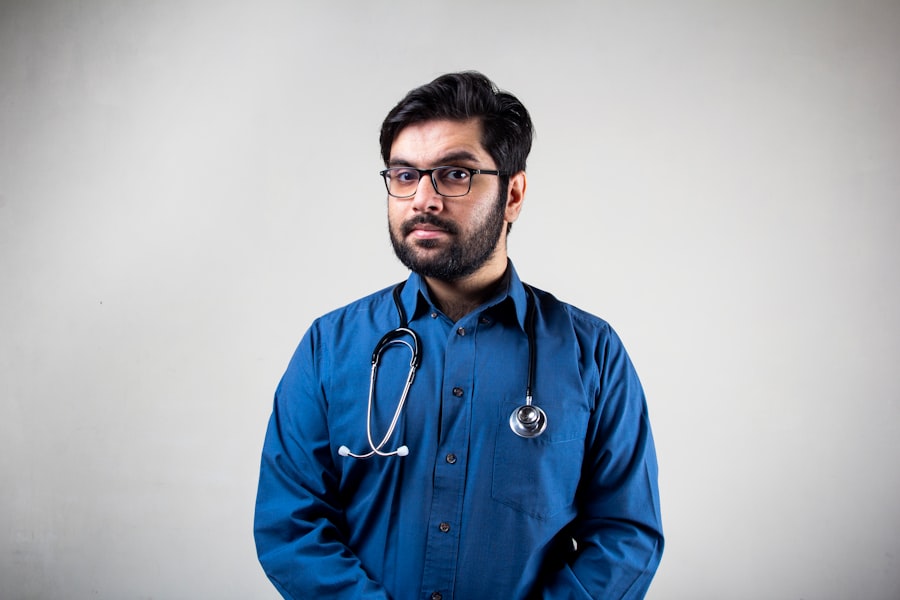In Norway, the healthcare system is built on the principles of equality, accessibility, and respect for individual rights. The Norwegian Constitution and various laws enshrine the rights of patients, ensuring that every individual has the opportunity to receive adequate healthcare services. This framework not only promotes the well-being of citizens but also fosters a culture of trust between patients and healthcare providers.
Understanding patient rights is essential for both patients and healthcare professionals, as it empowers individuals to advocate for their own health and ensures that they receive the care they deserve. The emphasis on patient rights in Norway reflects a broader commitment to human rights and dignity. The Norwegian government has established a comprehensive legal framework that outlines these rights, which are designed to protect patients from discrimination and ensure that they are treated with respect and dignity.
This article will explore the various rights afforded to patients in Norway, highlighting their significance in promoting a fair and just healthcare system. Book your 1-hour strategy session with Norway Relocation Group.
Summary
- Patient rights in Norway are protected by law and include the right to access healthcare services, informed consent, privacy and confidentiality, quality care and treatment, access to medical records, second opinion, complaints and appeals, language assistance, and participation in healthcare decisions.
- Patients in Norway have the right to access healthcare services without discrimination, and the government is responsible for ensuring that healthcare services are available to all residents.
- Informed consent is a fundamental patient right in Norway, and healthcare providers are required to provide patients with all necessary information about their diagnosis, treatment options, and potential risks and benefits.
- Patients in Norway have the right to privacy and confidentiality, and healthcare providers are required to protect their personal and medical information from unauthorized access or disclosure.
- Patients in Norway have the right to quality care and treatment, and healthcare providers are required to deliver services that meet the highest standards of safety and effectiveness.
The Right to Access Healthcare Services
One of the fundamental rights of patients in Norway is the right to access healthcare services. This right is enshrined in the Patients’ Rights Act, which guarantees that all individuals have the opportunity to receive necessary medical care without undue delay. The Norwegian healthcare system is designed to be inclusive, ensuring that services are available to everyone, regardless of their socio-economic status or geographical location.
This commitment to accessibility is particularly important in a country with vast rural areas, where healthcare services may be less readily available. Access to healthcare services also encompasses the right to receive timely treatment. Patients should not face unreasonable waiting times for essential medical procedures or consultations.
The government continually works to improve access by investing in healthcare infrastructure and resources, ensuring that all citizens can receive the care they need when they need it. This right is crucial for maintaining public health and ensuring that individuals can lead healthy lives.
The Right to Informed Consent

Informed consent is a cornerstone of patient autonomy and is a fundamental right in Norway’s healthcare system. Patients have the right to be fully informed about their medical conditions, treatment options, and potential risks before making decisions about their care. This process involves clear communication between healthcare providers and patients, allowing individuals to understand their choices and participate actively in their treatment plans.
The importance of informed consent cannot be overstated. It empowers patients to make decisions that align with their values and preferences, fostering a sense of ownership over their health. Healthcare professionals are obligated to provide information in a manner that is comprehensible and tailored to the patient’s needs, ensuring that individuals can make informed choices about their care.
This right not only enhances patient satisfaction but also strengthens the therapeutic relationship between patients and providers.
The Right to Privacy and Confidentiality
Privacy and confidentiality are paramount in the healthcare sector, and Norwegian law safeguards these rights for all patients. Individuals have the right to expect that their personal health information will be kept confidential and only shared with relevant parties involved in their care. This legal protection fosters trust between patients and healthcare providers, encouraging individuals to seek medical assistance without fear of judgement or breach of privacy.
The obligation to maintain confidentiality extends beyond mere compliance with legal requirements; it is an ethical imperative for healthcare professionals. Patients should feel secure in disclosing sensitive information, knowing that it will be handled with discretion. In an era where data breaches are increasingly common, the commitment to privacy in Norway’s healthcare system serves as a reassuring foundation for patient care.
The Right to Quality Care and Treatment
Quality care is a fundamental expectation for patients within the Norwegian healthcare system. The right to quality treatment encompasses not only the effectiveness of medical interventions but also the manner in which care is delivered. Patients are entitled to receive care that meets established standards of practice, ensuring that they benefit from evidence-based treatments and skilled professionals.
Norway’s commitment to quality care is reflected in its continuous efforts to improve healthcare services through research, training, and evaluation. Healthcare providers are encouraged to engage in ongoing professional development, ensuring that they remain up-to-date with advancements in medical knowledge and technology. This dedication to quality not only enhances patient outcomes but also reinforces public confidence in the healthcare system.
The Right to Access Medical Records

Patients in Norway have the right to access their medical records, a crucial aspect of transparency and patient empowerment. This right allows individuals to review their health information, understand their medical history, and actively participate in their care decisions. Accessing medical records can also facilitate better communication between patients and healthcare providers, as individuals can come prepared with questions or concerns based on their documented health information.
The process of accessing medical records is designed to be straightforward, with healthcare providers required to assist patients in obtaining their information upon request. This transparency not only promotes trust but also encourages patients to take an active role in managing their health. By understanding their medical history, patients can make informed decisions about future treatments and engage more effectively with their healthcare teams.
The Right to Second Opinion
The right to seek a second opinion is an essential component of patient autonomy in Norway’s healthcare system. Patients are entitled to consult another qualified healthcare professional if they wish to confirm a diagnosis or explore alternative treatment options. This right empowers individuals to take charge of their health decisions and ensures that they are fully informed about their choices.
Seeking a second opinion can be particularly valuable in complex medical cases or when facing significant treatment decisions. It provides patients with an opportunity to gain additional insights and perspectives on their condition, ultimately leading to more informed choices regarding their care. Healthcare providers are encouraged to support this right by facilitating referrals and respecting patients’ desires for further consultation.
The Right to Complaints and Appeals
In Norway, patients have the right to voice concerns about their care through formal complaints and appeals processes. This right is vital for ensuring accountability within the healthcare system and provides individuals with a mechanism for addressing grievances related to their treatment or experiences within healthcare facilities. Patients can submit complaints regarding various issues, including perceived negligence, inadequate care, or disrespectful treatment.
The complaints process is designed to be accessible and transparent, allowing patients to express their concerns without fear of retaliation or stigma. Healthcare providers are obligated to investigate complaints thoroughly and respond appropriately, fostering a culture of continuous improvement within the system. By encouraging feedback from patients, Norway’s healthcare system can identify areas for enhancement and ensure that individuals receive the high-quality care they deserve.
The Right to Language Assistance
In a multicultural society like Norway, language assistance is a critical component of patient rights. Individuals who do not speak Norwegian fluently or who have hearing impairments are entitled to receive language support during their interactions with healthcare providers. This right ensures that all patients can communicate effectively about their health needs and understand the information provided by medical professionals.
Language assistance may take various forms, including interpreters or translated materials, enabling patients to engage fully in their care processes. By providing language support, the Norwegian healthcare system demonstrates its commitment to inclusivity and equity, ensuring that language barriers do not hinder access to essential services. This right not only enhances patient satisfaction but also contributes to better health outcomes by facilitating clear communication.
The Right to Participation in Healthcare Decisions
The right to participate in healthcare decisions is a fundamental aspect of patient autonomy in Norway. Patients are encouraged to engage actively in discussions about their treatment options, preferences, and goals for care. This collaborative approach fosters a sense of partnership between patients and healthcare providers, ultimately leading to more personalised and effective treatment plans.
Participation in decision-making empowers patients by acknowledging their unique perspectives and values. Healthcare professionals are trained to involve patients in discussions about their care, ensuring that individuals feel heard and respected throughout the process. By prioritising patient involvement, Norway’s healthcare system promotes shared decision-making, which has been shown to enhance patient satisfaction and adherence to treatment plans.
Conclusion and Resources for Further Information
In conclusion, patient rights in Norway form a robust framework designed to protect individuals’ dignity, autonomy, and access to quality healthcare services. From the right to access medical care without discrimination to the right to participate actively in decision-making processes, these rights empower patients and foster trust within the healthcare system. Understanding these rights is essential for both patients seeking care and healthcare professionals committed to providing respectful and effective treatment.
For those seeking further information on patient rights in Norway, numerous resources are available. The Norwegian Patient Ombudsman provides guidance on navigating complaints processes and understanding individual rights within the healthcare system. Additionally, various organisations offer educational materials aimed at raising awareness about patient rights among both patients and healthcare providers alike.
As we continue to advocate for patient rights within Norway’s healthcare landscape, it is crucial that we remain vigilant in upholding these principles of dignity, respect, and equality for all individuals seeking care. In this context, it is worth noting that language plays a significant role in ensuring effective communication between patients and healthcare providers. For those interested in improving their Norwegian language skills or seeking assistance with language barriers within the healthcare setting, NLS Norwegian Language School offers comprehensive courses tailored specifically for non-native speakers.
These courses not only enhance language proficiency but also equip individuals with the necessary vocabulary and cultural understanding needed for effective communication in medical contexts. By investing in language education at NLS Norwegian Language School, individuals can further empower themselves within Norway’s healthcare system while ensuring they fully understand their rights as patients.
Speak Norwegian with confidence. Enroll in a class at the NLS Norwegian Language School now.

